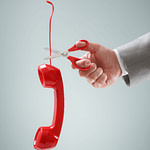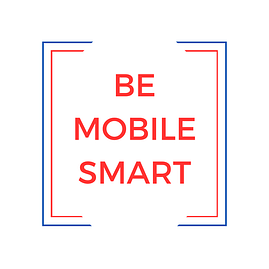
Dear Ms. Smartphone: I used to just pick up the phone and call my closest girlfriends and family members. Now it’s changed and I have to plan it in advance! First I send a text to find a time in common, then a calendar invite, and finally the phone call. I am finding this digital etiquette for phone calls to be exhausting. Sandy, Tiburon
Dear Sandy: You are right, the etiquette around phone calls has changed. Not everyone uses the protocol you described, but it is becoming common. During Covid, I encouraged people to reach out and touch someone but I did not consider all the steps it would take!
There are a couple of reasons for the change in digital etiquette, and I am not sure you can fight them. First, there are everyday occasions when people shouldn’t be interrupted by a ringing phone. Mobile phones, by definition, are mobile. So, they might ring when we are at a PTA meeting, sitting in a church service, or taking a conference call on Zoom. The ringing phone will distract both us and the people nearby. You could turn off the ring-through settings on your phone, but that sort of defeats the purpose of getting a spontaneous call from a friend.
Settle In:
If you send a text first, it is less obtrusive. And it allows both parties to be at a place and time where they can settle in and be ready to pay more attention to each other.
The second reason things have gone silent is related to ‘volume control.’ It’s volume as in the number of messages and communications. Digital media makes increasing demands on our attention. “Alone Together….” by Sherry Turkle notes that we need to control how much time something is going to take and fit it into our schedule. Sadly, controlling our relationships becomes a factor in this advanced (or backward) communications era.
There are some calls that defy this digital etiquette. Emergency phone calls from a trusted source break through the scheduling. Likewise, phone calls on Mother’s Day and Father’s Day do too; we don’t typically arrange a time to talk with our parents unless we are on different time zones or continents. Most importantly, shut-ins and isolated older people need no text or calendar. They are happy for the daily check-in.
There isn’t a good way that I can think of to reset our phone habits although the Covid lockdown did bring change, many for the good. In the UK, the number of calls in early 2020 increased by about 50% and the call length increased significantly. The same source says that in the US, call lengths on Verizon increased by 33 percent. For sure, many of these calls used video options, like Facetime.
Car Talk:
Some final words: suppose you follow the protocol, first send a text to your friend, then a calendar invite, and when you finally connect they are driving in the car- hang up. Some people like to schedule calls during their travel trips. You don’t want to be responsible for their distracted driving.
There are three types of distractions: visual distraction, manual distraction, and cognitive distraction. Newer phone-in-car systems like Android Auto and Apple CarPlay greatly minimize the first two. But, the third type, cognitive distraction, is vastly underrated.
Here’s an example: how many times have you arrived someplace and been surprised you got there? The detail of the travel trip escapes you because you were concentrating on a conversation, deep in your own thoughts, or just plain tired? Some call this highway hypnosis, while others think of it as zoning out. Most of the time in the car we can do two things at once- talk and drive- but there are those split-second moments when the conversation diverts our attention from the road. You can’t wish that time back. So, if you are a true friend and you reach someone who is driving, just say ‘No’. Friends trust friends to call each other, and to keep them safe.
Best of luck as you to sort out the new digital etiquette for phone calls, and hopefully it leads to good conversations after all.


Leave a Reply
You must be logged in to post a comment.